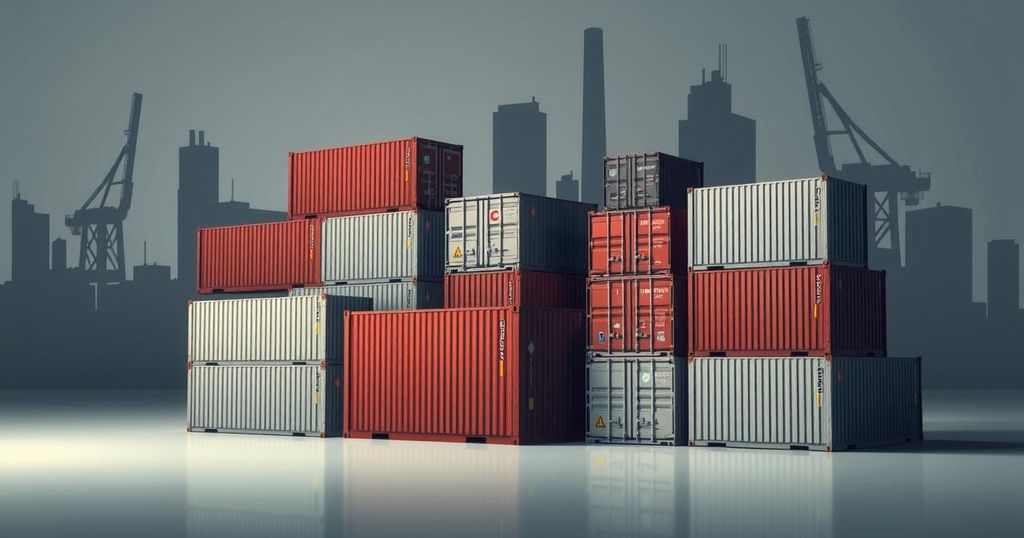President Trump’s tariffs on Canada and Mexico triggered swift retaliatory vows from both nations, while China also announced reciprocal measures targeting U.S. agriculture. Trudeau detailed Canada’s counter-tariffs, including $30 billion immediately and a potential increase. China’s response involved tariffs on U.S. agricultural goods, while Mexican President Sheinbaum promised retaliatory measures and expressed concerns about economic consequences.
In response to President Trump’s implementation of 25% tariffs on imports from Canada and Mexico, both nations swiftly announced their retaliatory measures. China, already subject to a rising series of tariffs on U.S. exports, also declared reciprocal actions aimed at American agricultural products. This escalation highlights the intensifying trade conflict between the United States and its nearest neighbors, alongside a significant adversary.
Canadian Prime Minister Justin Trudeau stated that Canada would impose $30 billion in counter-tariffs immediately, potentially increasing to $155 billion within three weeks. Trudeau emphasized that Canada would not tolerate what he termed an unjust action, asserting that Americans would face increased costs for essential goods. Premier Doug Ford of Ontario echoed this sentiment, suggesting that retaliatory options may include halting energy exports to the U.S., which could disrupt power supply for millions.
China’s government responded to the new tariffs by announcing its own additional tariffs of 10-15% on U.S. agricultural imports. Foreign Ministry spokesperson Lin Jian criticized the U.S. approach, asserting that intimidation would not change the determination of the Chinese people. Economists suggest that China may strategically limit its retaliation, focusing on sectors that most impact the American economy, particularly agriculture, without escalating the conflict excessively.
Mexican President Claudia Sheinbaum promised reciprocal tariffs but refrained from detailing specific measures. She expressed concern about the detrimental economic consequences the U.S. tariffs would have, describing them as “inconceivable.” She highlighted Mexico’s collaborative efforts with the U.S. to address fentanyl trafficking and immigration, urging the U.S. to acknowledge its role in the opioid crisis impacting both nations.
In summary, the imposition of tariffs by President Trump has sparked immediate retaliatory vows from Canada, China, and Mexico. Each country is preparing counter-measures aimed at protecting their economies while expressing concerns about the implications of an escalating trade war. Leaders from the impacted nations have emphasized the negative repercussions these tariffs could impose on jobs and economic relations.
Original Source: www.cbsnews.com




